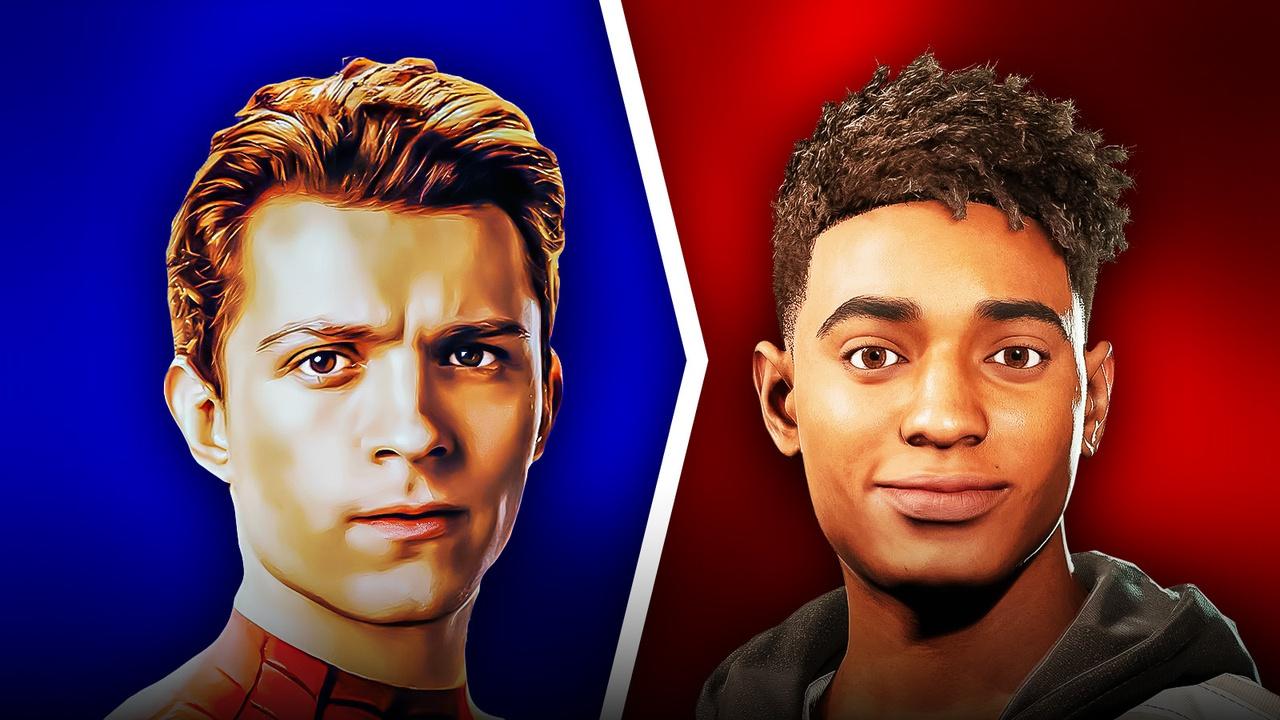
The Marvel Cinematic Universe finds itself at a pivotal juncture. Following the conclusion of the Infinity Saga and as the Multiverse Saga draws near, Marvel Studios is embarking on an essential phase of transformation. As the franchise broadens, it’s become notable for featuring legacy characters, and the future of the MCU hinges on who will take up the roles left vacant.
As more new characters like Kate Bishop, Kamala Khan, and Riri Williams step into the spotlight – Marvel Comics has a wealth of upcoming heroes whose tales match the intensity, emotion, and spectacle of their predecessors.
For Marvel to maintain its dominance, it’s essential they delve deeper than mere nostalgia and multiverse appearances. Instead, they should focus on the upcoming characters who embody freshness and courage, those prepared to break boundaries, exceed expectations, and create a groundbreaking narrative that will leave fans spellbound.
Marvel’s Legacy Heroes Who Should Lead the MCU’s Future
Amadeus Cho (Brawn)
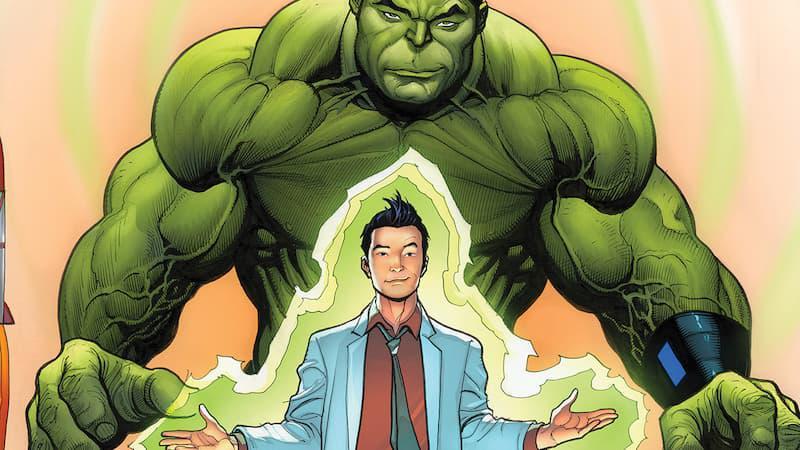
Amadeus Cho, first appearing in Amazing Fantasy #15 (2006), is a brilliant Korean-American teen ranked as Earth’s seventh-smartest individual. He has an extraordinary mind that processes data at speeds beyond human capacity. In Incredible Hulk #100 (2007), he takes in gamma radiation, transforming into Brawn who boasts strength and durability similar to the Hulk, yet maintains his intellectual prowess.
In the comic series Totally Awesome Hulk, he grapples with managing the Hulk’s immense power, aiming to channel it for good deeds while avoiding anger-induced outbursts, a challenge deeply tied to his devotion towards friends like Hercules.
Cho’s cultural heritage, nurtured by his immigrant background and tragic experiences with Pythagoras Dupree, provides a unique viewpoint for the Hulk’s history. Instead of the tormented solitude that characterizes Bruce Banner, Cho offers a contemporary spin on gamma-infused heroism through his confidence and humor.
Jonas (Vision)
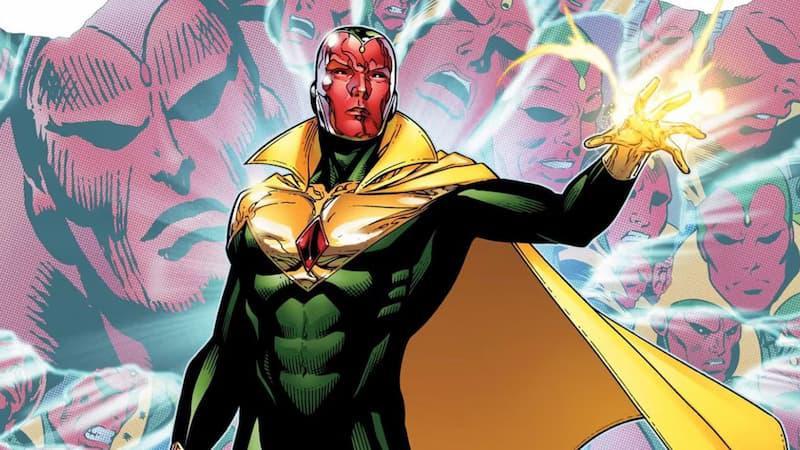
Jonas, first appearing in Young Avengers #1 (2005), is a character born from Vision’s operating system and given the abilities of phasing as well as a desire to explore his artificial sense of humanity. In the comics, his storyline within the Young Avengers series (2005-2006) revolves around him coming to terms with being Vision’s “brother,” developing romantic feelings for fellow teammate Cassie Lang (Stature), and finding his place among natural-born superheroes as he navigates his unique identity.
Jonas’ abilities, such as controlling density and interfacing with computers, resemble those of Vision, but his youthful outlook infuses his story with emotional depth. His narrative, centered around philosophical dilemmas about free will and connection, positions him effectively to carry on Vision’s legacy. This legacy would gain even greater significance in 2026 when Jonas faces an intriguing adversary, further cementing his place among the iconic characters.
Jake Gallows (Punisher 2099)
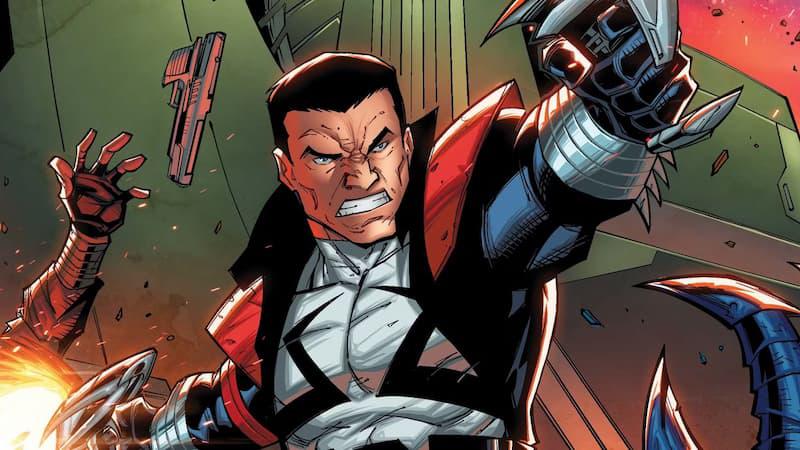
Jake Gallows, first appearing in Punisher 2099 #1 (1993), transforms from a public enforcer into a vigilante in a grim future setting. Equipped with sophisticated weaponry such as plasma rifles and a sonic baton, he serves justice in his own way. In the comics, his narrative unfolds in 2099 Unlimited (1993-1995), where he assumes the Punisher role after the brutal murder of his family. Driven by a strict moral compass, he fights against corporate corruption in Nueva York.
Instead of Frank Castle’s ruthless, unrefined methods (potentially showcased in Spider-Man 4), Gallows’ advanced technology and futuristic backdrop modernize the Punisher’s quest. His narrative, driven by personal tragedy and widespread injustice, presents a science fiction perspective on vigilantism.
In the Marvel Cinematic Universe, Jake’s background from the comics positions him as an intriguing candidate to take over Castle’s role, offering a futuristic, high-tech twist that could revitalize the street-level superheroes.
Miles Morales (Spider-Man)

In the worlds of “Spider-Man: Into the Spider-Verse” and its sequel, Miles Morales stands out as the potential live-action hero yet to make an appearance. He assumes the role of Spider-Man following the demise of Peter Parker in the comic books, making him the direct heir to the Spider-Man legacy.
The tale of Miles, a teenager grappling with issues of identity, power, and grief, is incredibly relatable. By introducing him, Tom Holland’s Spider-Man character could take on a mentor position, recreating the dynamic seen in the comics and interdimensional narratives that have been instrumental in his development.
What makes Miles stand out isn’t solely his lineage or attire, but rather his distinctive voice. He skillfully combines innocence and weighty duty in a manner that feels novel. Additionally, his special abilities – the venom blast and camouflage – lend him a visually captivating uniqueness.
Gwen Stacy (Spider-Woman)

As a devoted admirer, I can’t help but express my excitement about the evolution of Gwen Stacy into Spider-Woman (also known as Ghost-Spider) in Marvel comics and films like Spider-Verse. She has undeniably become one of Marvel’s most renowned up-and-coming heroes. In a world where she was bitten instead of Peter Parker, Gwen carries on his legacy with grace and determination.
In a time when strong, independent women are taking center stage, Gwen stands out by portraying themes of sorrow, absolution, and resistance. Her narrative carries an undertone of sadness yet she grows in resilience and intelligence, prepared to forge her unique journey through multiple realities.
Her aesthetic alone (hoodie, drumsticks, and neon suit) makes her a standout.
Jake Gómez (Werewolf by Night)
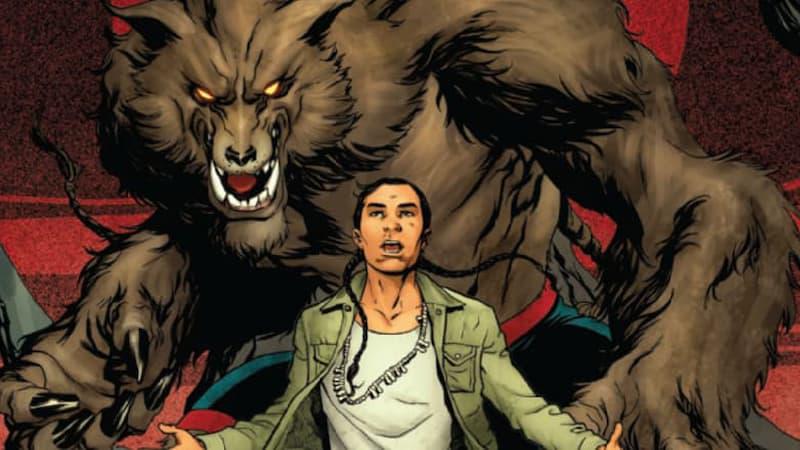
Jake Gomez assumes the role previously held by Jack Russell as the Indigenous version of the Werewolf by Night. In his new take on this iconic horror figure, Jake infuses the character with a rich indigenous background and contemporary significance.
The special presentation of “Werewolf by Night” from Marvel Studios initially established the idea, primarily focusing on the character Jack. A future project centering around Jake could expand upon this foundation, delivering a realistic and engaging supernatural narrative driven by characters.
Jake being portrayed as a Native American hero within the Marvel Cinematic Universe (MCU) would provide much-needed representation and offer an opportunity to delve into themes of mythology, ancestry, and communal bonds. This character’s narrative could skillfully interweave elements of horror with profound self-reflection.
Nadia Pym (Wasp)
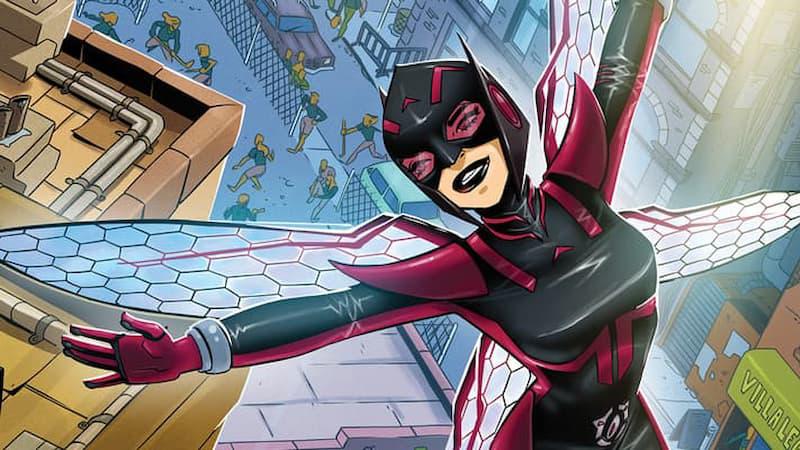
As a die-hard fan, I’d rephrase it like this: I, much like Hank Pym’s offspring, embody the role of a gifted scientist, standing tall on the shoulders of giants – Pym and Janet van Dyne. I carry their legacy, donning their mantle, yet carve my own niche, fashioning an identity that’s uniquely mine.
Introducing Nadia into the Pym and Van Dyne family will add depth to their relationships and provide us with a new teenage superhero. She is resourceful, inquisitive, and strong-willed, offering an evolution of the Wasp role, surpassing Hope’s position in this dynamic.
In simpler terms, Nadia possesses a level of intelligence that matches both Riri Williams’ and Shuri’s, making her an ideal character for Marvel Cinematic Universe (MCU) tales centered around advanced science. Her cheerful disposition offers a delightful contrast to the dark pasts often associated with many superheroes.
Fallon Grey (Daughter of Blade)
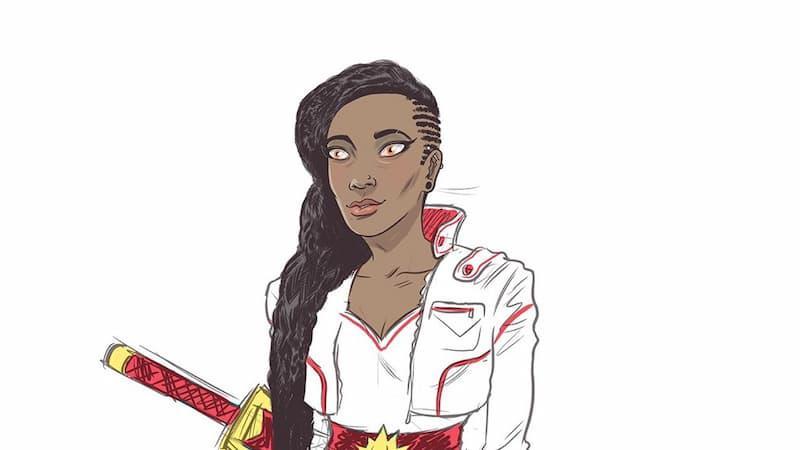
Despite not being deeply rooted in the Marvel Comics lore, Fallon Grey was previously marketed as Blade’s daughter. This teenage character was expected to follow in her father’s footsteps as a formidable monster hunter. Given her lineage, she clearly represents Blade’s legacy, ready to continue his supernatural crusade into the next generation.
Fallon could bring a contemporary, Gen-Z viewpoint to the art of vampire hunting. Her character might strike a chord with a younger demographic, enhancing Marvel’s horror genre offerings and potentially broadening the Daywalker saga.
This character’s development might delve into topics like intergenerational wounds, self-discovery, and the apprehension of turning into what you oppose, all while wielding a sword against the undead. The relationship between father and daughter, with Blade reprising his role in the Marvel Cinematic Universe, could offer both emotional depth and high-octane action scenes.
Hulkling (Teddy Altman)
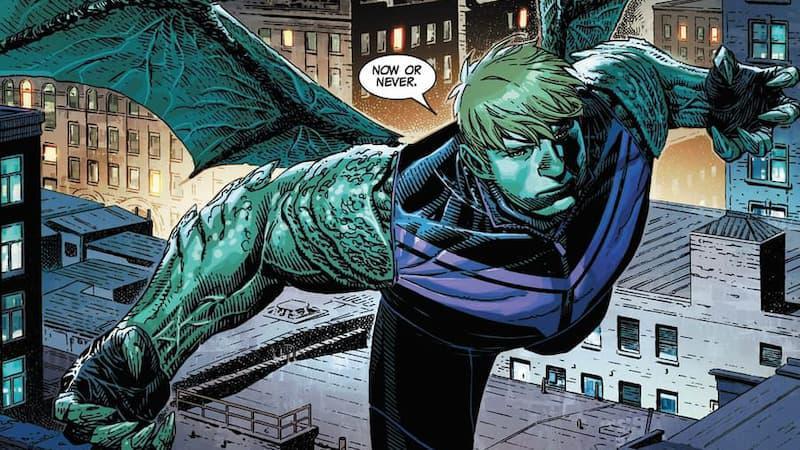
In the comic books, Teddy Altman, also known as Hulkling, is a unique character with roots in two powerful alien races – the Kree and the Skrull. He plays a significant part in interstellar politics. His identity bears resemblance to the Hulk, while his lineage links him to Captain Marvel due to his Kree-Skrull heritage, making him the inheritor of both characters’ legacies.
With the Kree and Skrulls now established in the Marvel Cinematic Universe (MCU), it seems only a matter of time before Hulkling makes his appearance. His character could provide an intriguing link between cosmic and earthly storylines, offering depth both emotionally and politically. Moreover, his kindness and loyalty ensure he remains as relatable and down-to-earth as he is otherworldly.
Above all, his romantic involvement with Wiccan serves as an influential model for LGBTQIA+ representation in popular comic book narratives. Including this dynamic in the Marvel Cinematic Universe (MCU) could mark a significant stride towards fostering more inclusive storytelling.
Genis-Vell (Captain Marvel)
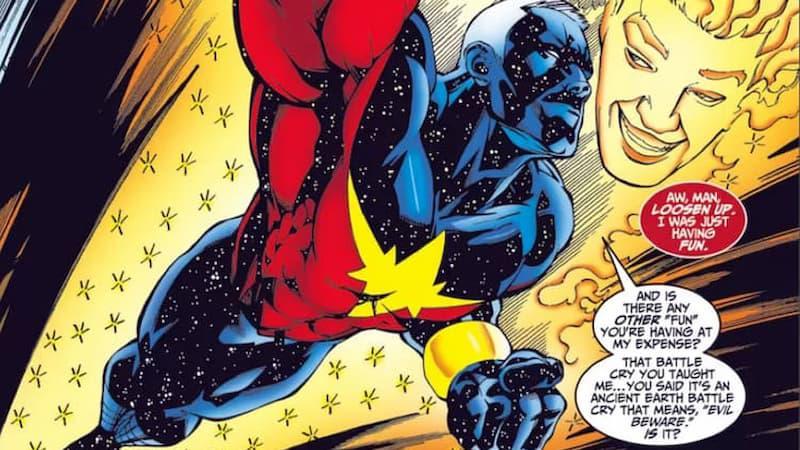
In Marvel Comics, Genis-Vell is identified as the son of the initial Mar-Vell, the Kree warrior who originally held the title Captain Marvel. Consequently, Genis-Vell represents a direct successor to the Captain Marvel role, carrying on not just his father’s name but also his cosmic duties and profound obligations.
In the comic books, Genis struggles with the colossal power of the Nega-Bands and a fragmented psyche that lets him see all time – the past, present, and future – at once.
As a movie enthusiast, I’d put it like this: Unlike Carol Danvers, who keeps her cosmic powers rooted in military discipline and human understanding, Genis-Vell’s journey delves deeper into metaphysical and philosophical realms. This complexity makes him an ideal candidate for a visually stunning and emotionally rich Marvel Cinematic Universe tale. Bringing Genis-Vell into the MCU could broaden the Captain Marvel narrative, exploring uncharted territories within the mythos.
Read More
- Five Nights At Freddy’s 2 Review: The Video Game Movie Sequel Limbos Under The Low Bar Set By The First Film
- Black Phone 2 Ending & Grabber’s Fate Explained
- ‘And Then The Chesty One Comes In.’ SNL’s Cut For Time Sketch Hilariously Reimagined Sydney Sweeney And Zendaya’s Euphoria
- Прогноз криптовалюты BNB: прогнозы цены BNB
- George Clooney Has The Best Reaction To The Viral Louvre Heist Following Ocean’s Eleven Comparison
- Прогноз криптовалюты USD1: прогнозы цены USD1
- The Rising of the Shield Hero Season 4 Episode 4 Release Date, Time, Where to Watch
- Jesse Armstrong: The Surprising Link Between Peep Show and Succession
- I Like Jenna Ortega’s Wednesday And All, But I Think I Want The Show’s LEGO Sets Even More Than Season 3
- My Dress-Up Darling Episode 6 Release Date, Time, Where to Watch
2025-07-23 23:06